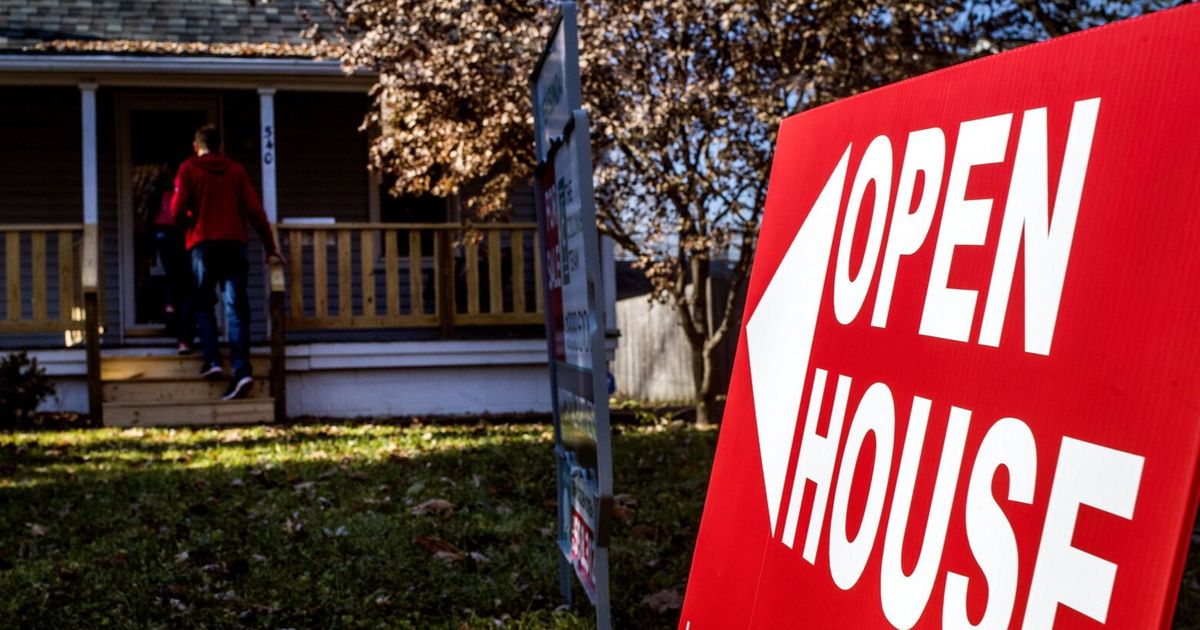More than a year ago, the city of Kenmore made a choice to invest in affordable housing — even setting aside land and millions of dollars to make it happen — but when constituents showed up in force to fight the project, city leaders caved to the pressure.
Now, state and local officials and affordable housing advocates are strongly denouncing Kenmore’s actions. And it could propel into law a new Washington House bill that would add state oversight to prevent cities from doing the same in the future.
City staff and nonprofit Plymouth Housing spent more than 20 months on the fully funded project that would have created 100 units of affordable housing in an area that needs hundreds more.
Leaders across the region said negative stigmas around poverty, public outcry and not-in-my-backyard attitudes cannot dictate the region’s ability to meet its affordable housing goals and decrease its homeless population as the crisis becomes deadlier than ever.
“Affordable housing is desperately needed, supported by a majority of voters and endorsed by mayors and city council members around the region, and taking steps backward like this is an embarrassing failure of leadership,” King County Executive Dow Constantine said of Kenmore on Friday.
He called the City Council’s actions “profoundly irresponsible.”
Michele Thomas, the director of policy and advocacy for the Washington Low Income Housing Alliance, a statewide coalition that lobbies for more affordable housing, called Kenmore’s decision “particularly devastating.”
Patience Malaba, leader of the Housing Development Consortium, which represents nonprofit affordable housing providers, said the Kenmore City Council “failed residents struggling the most.”
The project was officially voted down in a special City Council meeting last week in a 5-2 vote. Kenmore Mayor Nigel Herbig, an employee of the King County Regional Homelessness Authority, was one of the votes in support of the project.
But even he voted against it earlier in the process.
In the summer of 2022, the council unanimously agreed to hire Plymouth Housing for the more than $40 million project. The permanent supportive housing provider secured at least seven different funding sources — which included $3.2 million from Kenmore.
Several constituents and council members, who were present during the project’s inception, claimed they didn’t know the site would serve people exiting homelessness, rather they thought the project would solely support veterans, people with disabilities and seniors who had fallen on hard times.
Plymouth often works with current or formerly homeless people who also fall into one or more of these categories.
Several previous Kenmore City Council meetings, project documents and Plymouth’s website declare the nonprofit provides housing for people exiting homelessness. When Plymouth first presented its project proposal to Kenmore’s City Council in May 2022, Karen Peterson, Plymouth’s vice president of real estate, began the presentation by saying, “For 40 years, Plymouth has ended homelessness one person at a time. We provide permanent supportive housing to people who have experienced chronic homelessness.”
Additionally, Plymouth secured more than $30 million from Washington state — that funding requires that tenants are homeless upon entry and earn between zero percent to 30% of the area median income. Kenmore’s median household income was $132,191 in 2022, according to the U.S. Census.
Many constituents also worried the six-story building would be too tall and devalue Kenmore’s small and beloved downtown. Several raised concerns that the building was too close to the public library, where families take their children.
A surge of heated public pushback over the last two months — which led to a nearly nine-hour City Council meeting in mid-December — triggered Kenmore’s council to back out on a final step of approval for the project.
Kenmore resident Juliana Pooley, who supported the project, said a private Facebook group of Kenmore residents helped to stoke the fires against it.
“I became worried that despite the inclusive design and urban planning, the project would have a scarlet letter, and residents would become stigmatized before the building even opened,” Pooley said.
Former Kenmore City Councilmember Laurie Sperry spoke out against placing this project on the downtown lot, 6532 NE Bothell Way, in the Dec. 11 City Council meeting, which was the first major public showing of opposition to the project.
“I don’t think that there is any public benefit for this land being given to this project. There’s certainly not anything that I can see that is good about it,” Sperry said.
Carol Castellani, who used to work for the Seattle Police Department, said during the same meeting that this building would become a drug den.
“Gangs carry guns. Gangs sell drugs. Plymouth [Housing] tenants buy drugs,” Castellani said. “This is a disaster in the making.”
Metropolitan King County Councilmember Claudia Balducci said she knows well what it’s like to come under pressure from constituents. Before joining the council, she served as mayor of Bellevue. But Balducci said some projects require creative problem-solving to bring community members on board while still finding a way to move forward.
“If we stopped doing something every time neighbors said, ‘Don’t do it,’ we would have no light rail. We would have no homeless shelters. We would have a lot fewer things than we have,” Balducci said.
Plymouth — which operates permanent supportive housing for nearly 1,200 people — said it’s never come so far on a project to have it end so suddenly.
“It’s a tragedy that some people in Kenmore will remain homeless because of this decision,” said Plymouth CEO Karen Lee.
Officials at the King County Regional Homelessness Authority, which manages King County’s response to homelessness, said the region sorely needs permanent supportive housing to alleviate long waitlists.
Permanent supportive housing provides wraparound services to people living in apartments with 24/7 on-site staffing. While it isn’t the only form of housing used to exit someone out of homelessness, experts say the permanent supportive model is a critical piece, especially for assisting people who might have serious physical or mental health needs after surviving outside for years.
Every week, there are more than 1,000 nominations by case workers to get their homeless clients into permanent supportive housing for single adults, according to data provided by King County’s Coordinated Entry System, which manages housing requests and is run by the homelessness authority.
According to the 2023 Housing Inventory Count, King County has 7,330 units of permanent supportive housing. These units remain consistently full with all vacant spots seeing immediate referrals, according to the homelessness authority.
Based on state projections, Kenmore needs to build 559 units of permanent supportive housing and 1,063 housing units for people earning between zero percent to 30% of the area median income in the next 20 years to meet the region’s rate of growth and fill its housing gaps.
Kenmore currently has zero units of permanent supportive housing, according to King County data.
“People often ask us how they can help solve the homelessness crisis, and the answer is that housing solves homelessness,” said Helen Howell, interim CEO of the King County Regional Homelessness Authority. “The math hasn’t changed — homelessness will continue to increase unless there are enough safe places for people to live.”
Kenmore’s Deputy Mayor Melanie O’Cain, who voted in favor of hiring Plymouth Housing to complete the affordable housing project in June 2022, said she didn’t realize it would house formerly homeless people until November of 2023.
She added, “Right now, our community wasn’t ready for that project.”
The proposed six-story building’s location caused fear and outrage in recent council meetings. But it was originally selected by the city of Kenmore and approved by Kenmore’s City Council, including O’Cain. Three new members joined Kenmore’s City Council since then.
O’Cain said that she visited the location just recently and realized “Oh, this doesn’t make sense right now,” she said.
Herbig and Councilmember Debra Srebnik, who worked on homelessness for King County and now works on climate policy for the Washington Department of Commerce, voted to deny the development agreement, which was a procedural step to move the project forward, in the Dec. 11 City Council meeting.
Both declined The Seattle Times’ request for comment.
Plymouth Housing wouldn’t say how much it’s already spent on the project, but it did share that two staff members spent an estimated 900 hours on the project over the last 20 months.
Since Plymouth was awarded the project in June of 2022, Plymouth VP Peterson said the team has remained in consistent contact with the city’s staff. In turn, city staff have provided regular updates to the Kenmore City Council. By the time the council voted the project down, Kenmore city staff reported the council had been updated on the project during 20 council meetings.
Deputy Mayor O’Cain said that she’s heard from many constituents who say they are supportive of affordable housing, want to help their poorest neighbors get inside and want to see Kenmore contribute.
She also said if the city faces similar complaints and fears on future projects, Kenmore will have to move forward regardless of what constituents say.
“We do have a responsibility to provide housing to those in most need,” O’Cain said.
State Rep. Strom Peterson, D-Edmonds, introduced a bill last week that he hopes will eliminate a city’s ability to pull out of similar projects. He said Kenmore joins a growing list of cities that have found ways to get out of building affordable housing or shelter after he worked to pass House Bill 1220 in 2021, which was designed to limit cities’ ability to prohibit shelter or emergency housing.
If passed, this new bill would allow the state government more power to ensure that cities cannot apply prohibitive zoning ordinances to prevent the development of affordable housing.
“In the midst of this [housing] emergency, we’re seeing, I think, some really unproductive behavior out there,” Strom said.
















